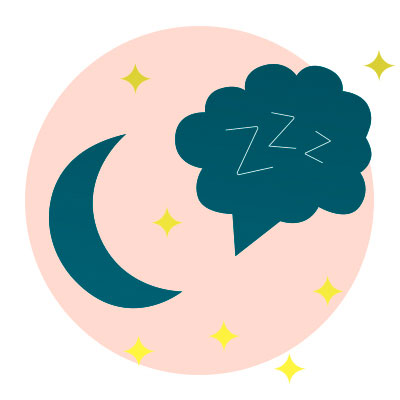HGH Therapy Benefits for Better Sleep

This is why growth hormone is still important to fully grown adults. In addition to helping your body to repair itself during sleep, HGH also promotes a healthy metabolism, enhances your physical and mental performance, and helps you to live a long and healthy life.
Why Does HGH Influence Sleep?
The right amount of sleep is essential to make sure your body produces its much-needed HGH. But HGH itself also influences sleep. Cortisol is the stress hormone. When the level of cortisol in your blood is high, you cannot relax. HGH and cortisol are biological antagonists. As you are falling asleep and your body starts to release HGH, cortisol levels drop, and it becomes easier to relax and fall into a deeper sleep when the most HGH is released.
When you are not getting enough sleep, you are not producing enough HGH. Medical science has learned that it can become a kind of vicious cycle. That is because not only is most of your HGH produced while you sleep, but people with low HGH often have trouble sleeping. So, it becomes a kind of downward spiral. The less HGH you make, the less sleep you get, the less sleep you get, the less growth hormone you make, and so on, and so on…
Furthermore, we know that people who are not producing enough HGH tend to be overweight, and people who are obese tend to have sleep apnea, which causes disturbed sleep.
HGH and sleep are intimately connected.
How Does HGH Therapy Benefit Better Sleep?

Does that mean that growth hormone therapy can be used as a treatment for sleep disorders? There is ongoing research into using HGH to treat disturbed sleep, and studies are showing promising results.
If insomnia is your only symptom, it is unlikely that your doctor would prescribe HGH replacement as your first treatment. However, if you are over 40, and are having trouble sleeping, and you have some of the other symptoms of GHD, you could be a candidate for growth hormone therapy.
Besides poor sleep, some of the other symptoms of adult-onset growth hormone deficiency include:
- Lack of energy
- Sexual health issues
- Weight gain
- Decreased bone health
- Decreased ability to build lean muscle
Does HGH Only Work at Night?
HGH is naturally secreted in pulsed bursts throughout the day and night. However, most of your HGH is released during deep sleep.
If you are on growth hormone replacement therapy, HGH injections work if you take the day or night. However, most doctors suggest that you take your injections at night because that more closely mimics your body’s natural release of HGH.
Growth Hormone Release During Sleep
HGH is primarily released into the bloodstream during deep sleep. The release of HGH during sleep is a critical part of the way your body is restored while you are sleeping.
HGH is released during times of vigorous exercise and during sleep. However, medical experts agree that as much as 75% of your HGH is released during sleep. This is just one of the many reasons why a good night’s sleep is essential to good health. People suffering from insomnia or other forms of disturbed sleep are unlikely to be producing enough human growth hormone, and therefore could be suffering from a growth hormone deficiency.
Most of your HGH is released as you sleep
Will You Sleep Less When Using HGH Injections?
No, HGH injections will not necessarily make you “sleep less.” HGH injections will help regulate sleep, so you have more normal sleep patterns and better, more restful sleep. So if you are not getting enough sleep, HGH can help you get better, deeper sleep. If you are sleeping too much, HGH injections can help to adjust your bodily rhythms so that you will be getting just the right amount of sleep each night.
Can HGH Treat Sleep Disorders?
There is ongoing research into using HGH to treat disturbed sleep, and studies are showing promising results. Adults who have lower levels of growth hormone do not get the recommended amount of sleep. The kind of sleep disorders typically suffered by adults with age-related growth hormone deficiency include (GHD), insomnia, restless sleep, sleep apnea (especially if they are overweight), and frequent waking. In adults with GHD and these types of sleep problems, HGH replacement therapy can definitely help.
How Quickly Does HGH Improve Sleep?
There is promising research to suggest that HGH can help produce better sleep. However, it is improbable that your doctor will prescribe HGH only for sleep issues. However, if you are having trouble sleeping, and you have been prescribed HGH injections to treat GHD, you will find that your sleep will improve within a few weeks of beginning treatment.
Do keep in mind, however, that while it can promote better sleep, HGH is not a sleep aid. You cannot ask for an HGH prescription if sleep is your only concern. Hormone specialists only prescribe HGH therapy to adults following blood testing and diagnosis of growth hormone deficiency.
Most people find that by the end of the second or third week of HGH treatment, they are waking up feeling refreshed in the morning. They fall asleep faster and sleep more soundly.
What Do the Studies Say About HGH and Treating Age-Related Sleep Disturbances?
Studies have shown that poor sleep can reduce the amount of HGH your body produces. In fact, according to recent research, getting an adequate amount of deep sleep is one of the best ways to improve your long-term HGH production.
A study published in The Journal of Clinical Investigation concluded that “peak HGH secretion was delayed if the onset of sleep was delayed.”
A 2013 peer-reviewed study published in The European Journal of Endocrinology concluded that “four months of HGH replacement therapy partly reversed sleep disturbances previously observed in untreated patients.”
A study from 2010 appeared in The Journal of Clinical Endocrinology and Metabolism with the following conclusion, “GHD is associated with sleep disorders that may be caused by specific hormonal alterations as well as with poor subjective sleep quality and daytime sleepiness. Disturbed sleep is likely to be partly responsible for increased tiredness, a major component of quality of life in GHD.”
Currently, there is an ongoing clinical trial being run by the University of Washington, in collaboration with the National Institute of Mental Health, that is looking into “the effects of giving growth hormone-releasing hormone (GHRH) to treat sleep disorders in older men and in older women.” Results have yet to be posted from the trial.
Adequate amounts of HGH are essential for the rejuvenating properties of sleep.


